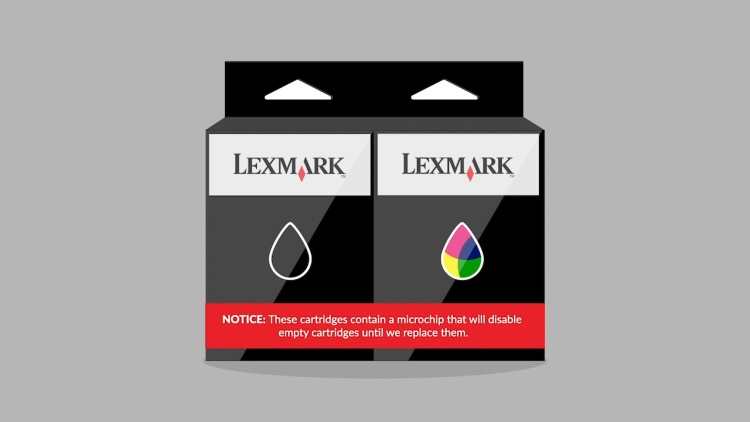Lexmark International, Inc. v. Static Control Components, Inc.
United States Supreme Court
134 S. Ct. 1377, 572 US 118 (2014)

- Written by Sean Carroll, JD
Facts
Lexmark International, Inc. (plaintiff) manufactured printers and ink cartridges. Once an ink cartridge was empty, an embedded Lexmark microchip disabled the cartridge. At that point, a customer could either throw it away or return it to Lexmark for a filled cartridge with a new microchip. Static Control Components, Inc. (defendant) manufactured parts necessary to refurbish and resell Lexmark ink cartridges, including a microchip that imitated Lexmark’s microchip. Lexmark, seeking to encourage consumers to return empty cartridges directly to the company, started a program offering consumers a 20-percent discount on new cartridges if they agreed to return the used cartridge to Lexmark. Lexmark’s packaging contained a notice stating that consumers were bound to the terms of the program if they opened the box. Lexmark also sent letters to remanufacturers stating that it was illegal to use Static’s products to refurbish and resell Lexmark cartridges. Lexmark sued Static for copyright infringement. Static countersued for false advertising, claiming that Lexmark’s packaging notices and letters to remanufacturers were misleading and actionable under the Lanham Act. The district court dismissed Static’s countersuit on the ground that Static did not have standing to bring the claim. The United States Court of Appeals for the Sixth Circuit reversed. The United States Supreme Court granted certiorari.
Rule of Law
Issue
Holding and Reasoning (Scalia, J.)
What to do next…
Here's why 904,000 law students have relied on our case briefs:
- Written by law professors and practitioners, not other law students. 47,100 briefs, keyed to 995 casebooks. Top-notch customer support.
- The right amount of information, includes the facts, issues, rule of law, holding and reasoning, and any concurrences and dissents.
- Access in your classes, works on your mobile and tablet. Massive library of related video lessons and high quality multiple-choice questions.
- Easy to use, uniform format for every case brief. Written in plain English, not in legalese. Our briefs summarize and simplify; they don’t just repeat the court’s language.





